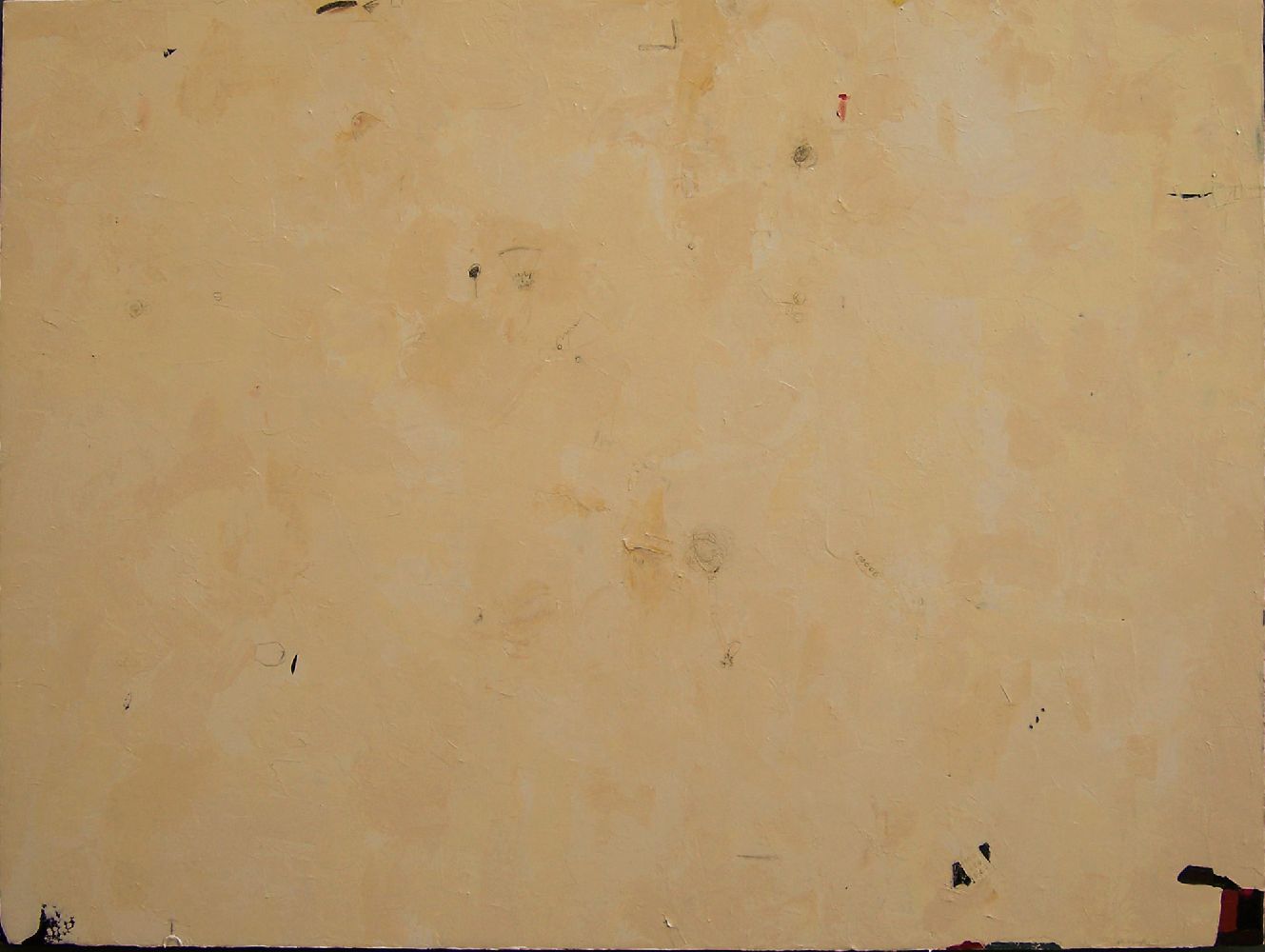

Title: "F You Charlie" By artist John McLaughlin
Shipping: $80.00
Artist: N/A
Period: Contemporary
History: N/A
Origin: N/A
Condition: Museum Quality
Item Date: 2008
Item ID: 2936
“F You Charlie” by artist John McLaughlin, also known as drawinghermit. This is a mixed media painting/drawing on a premium stretched canvas. First I used acrylic paint to establish an ivory/beige background base color, then used colored pencils, crayon and oil paint stick to make childlike drawings, scribbles and forms, adding and painting over during a period of days, weeks, and months. Some of the depicted objects are representational and some are purely abstract gestures. To me F you Charlie represents one of these walls that has witnessed the passage of time. In past years I worked in various large decrepit warehouses. In these old buildings, I was always fascinated by the walls that displayed their various marks, scratches, stains, written words and numerous thick layers of paint. Like a palimpsest , the walls with their layers of paint left some previous marks to show through, that to me resembled unusual signs and symbols. There always seemed to be the ubiquitous “fuck you charlie” written somewhereon the wall. (I didn’t know if it was a particular Charlie or included them all). I think it was the catch phrase of the day, like an earlier time of “kilroy was here.” I felt this painting was done when the entire surface somehow looked right to me, but it may really never be finished. This painting was in the Best of Michigan: Michigan Fine Art Competition that was displayed at the Birmingham Bloomfield Art Center in October 2009.
Link: http://en.wikipedia.org/wiki/Art_Abstraction
Abstraction in art: Most typically abstraction is used in the arts as a synonym for abstract art in general. Strictly speaking, it refers to art unconcerned with the literal depiction of things from the visible world. However, refer to an object or image which has been distilled from the real world, or indeed, another work of art. Artwork that reshapes the natural world for expressive purposes is called abstract; that which derives from, but does not imitate a recognizable subject is called nonobjective abstraction. In the 20th century the trend toward abstraction coincided with advances in science, technology, and changes in urban life, eventually reflecting an interest in psychoanalytic theory. Later still, abstraction was manifest in more purely formal terms, such as color, freed from objective context, and a reduction of form to basic geometric designs.